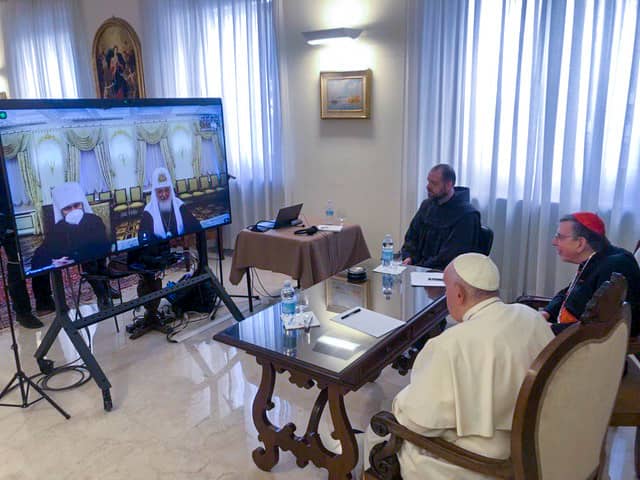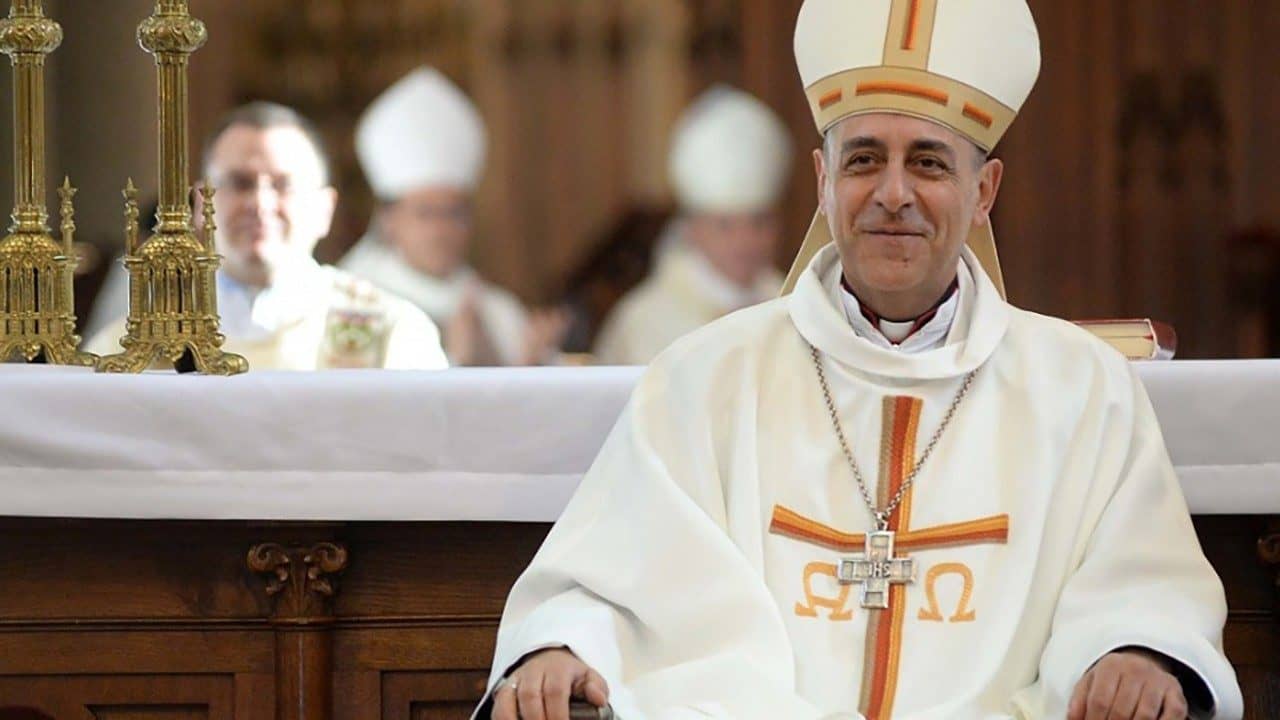ROME – Charles Dickens famously described the French Revolution as the “best of times, the worst of times.” Catholicism too seems to be experiencing a revolutionary moment fueled by the clerical sexual abuse scandals, and the opening week of this month’s Synod of Bishops in Rome has, in that sense, seemed a highly Dickensian experience.
On Friday, the Centre for Child Protection (CCP) at Rome’s Jesuit-run Gregorian University formally launched a new master’s program in child protection, a significant expansion of its efforts to raise up a new global cohort of experts.
“Our aim is to build a network of skilled and committed personnel, safeguarders for the Church,” said German Jesuit Father Hans Zollner, direct of the CCP and a member of the Vatican’s Pontifical Commission for the Protection of Minors.
The CCP was founded in 2012, originally in Munich as a response to the abuse scandals that exploded in Germany in 2010 and 2011. It later relocated to Rome and has become the primary beachhead in the Eternal City for abuse survivors, advocates and experts committed to the cause of reform.
“Our network is growing,” Zollner said. “Every day we discover people who want to work with us to build a safer world for children.”
Oct. 6 was chosen as the launch date because it was the one-year anniversary of the close of the CCP conference called “Child Dignity in the Digital World,” which brought together the cream of the crop of the academic, law enforcement and clinical worlds to discuss how to keep children safe in a 21st century digital universe.
The inauguration featured a searing speech by Cardinal Reinhard Marx of Munich, who helps fund the CCP and who serves as a member of Pope Francis’s “C9” council of cardinal advisors. He spoke like someone who’s been through the ringer on the crisis.
“Abuse is a crime, and in civilized society it’s obvious how to handle [those crimes],” he said. “They must be investigated and dealt with.”
“It’s shocking and incomprehensible to see that in the Church, there have apparently been other standards – suppressing, covering up, dodging and denying,” he said. “These have apparently been the key guidelines in handling sexual abuse in the past, and possibly also in the present,” he said, adding that “I don’t see all the situations in the Church.”
He then outlined several excuses conventionally given by Church leaders, including: Talk of an abuse crisis is an “evil conspiracy” by the media against the Church; most abuse occurs not in the Church but in the family; these are just one-off mistakes; the Church must show mercy, reconciliation and benevolence towards abusers; and, for clergy, that abusers are friends they’ve known since seminary and it’s natural to want to protect them.
“Those who use these excuses are equally guilty in causing the suffering of victims,” he said, “and they become complicit with the perpetrators.”
Also on hand at the Gregorian event were two secular experts: Elizabeth Letourneau, director of the Moore Center for the Prevention of Child Sexual Abuse at Johns Hopkins, and Dana Humaid, a major in the police services of the United Arab Emirates who now serves in the country’s Ministry of the Interior. Both described programs and events being developed in cooperation with the CCP, and it was hard not to take pride in the fact that a Catholic research facility is seen as a state-of-the-art pacesetter by such leading lights.
Having attended the conference on the digital world last year, Hamid said her take-away was, “What’s happening here is far too great for us not to continue it and take it forward.”
Across Rome at the Synod of Bishops, Archbishop Anthony Fisher of Sydney, Australia, addressed the young people in the hall on day one on Thursday, using the kind of language people scarred by the abuse crisis long to hear from their leaders.
“For the shameful deeds of some priests, religious and lay people, perpetrated upon you or other young people just like you, and the terrible damage that has done: I apologize,” pleaded Fisher.
“And for the failure of too many bishops and others to respond appropriately when abuse was identified, and to do all in their power to keep you safe: I apologize,” he continued.
RELATED: Synod doesn’t waste time taking up abuse, LGBT issues and migration
Taken together, such moments this week suggest that wheels are turning in the Church, that lessons have been learned, and that all the heartache and pain of the last two decades have not been entirely in vain.
On the other hand …
It’s now been six weeks since a former papal ambassador in the U.S. charged that Pope Francis was aware of sexual misconduct charges against ex-Cardinal Theodore McCarrick five years ago and took no action, and neither the pope nor the Vatican’s official communications channels have issued any sort of substantive response.
In addition, we also now know that the pope rejected an American request for an apostolic visitation to get to the bottom of the McCarrick case, and it’s still not clear what role, if any, the Vatican may take in such a probe. Specifically, it’s unclear whether the pontiff will grant the sort of access to documents that would be required to establish what the Vatican knew and when it knew it.
Meanwhile, a massive sexual abuse crisis continues to metastasize in Chile, American states are mobilizing for grand jury investigations along the lines of the Pennsylvania report, the German Church released the study cited by Marx, and most recently American attorney Jeff Anderson filed a lawsuit against the Vatican in American courts seeking the release of files on abuser priests accumulated since St. Pope John Paul II ordered that they be sent to the Vatican’s Congregation for the Doctrine of the Faith in 2001.
Further, when the Synod of Bishops opened Wednesday, an Argentinian pope, Italian synod head and Brazilian chairman served up more than 8,400 words of rhetoric, all without mentioning the abuse scandals even once – perhaps suggesting that if you come from a culture that hasn’t fully experienced the “crisis” yet, you may not quite get it.
RELATED: Silence surrounds abuse crisis on day one of the synod
That, actually, is just a partial list of developments that might induce one to despair, but the fact remains that the good news is just as real.
Perhaps what all this underscores is that the Catholic story is almost always a mix of the sublime and the outrageous, and which one looms larger at a given moment is likely to be as much a product of circumstance and priority as substance.
That’s been a truth of Catholic life from the beginning, and what this week seemed to confirm is that it’s as true now as it’s ever been.

















